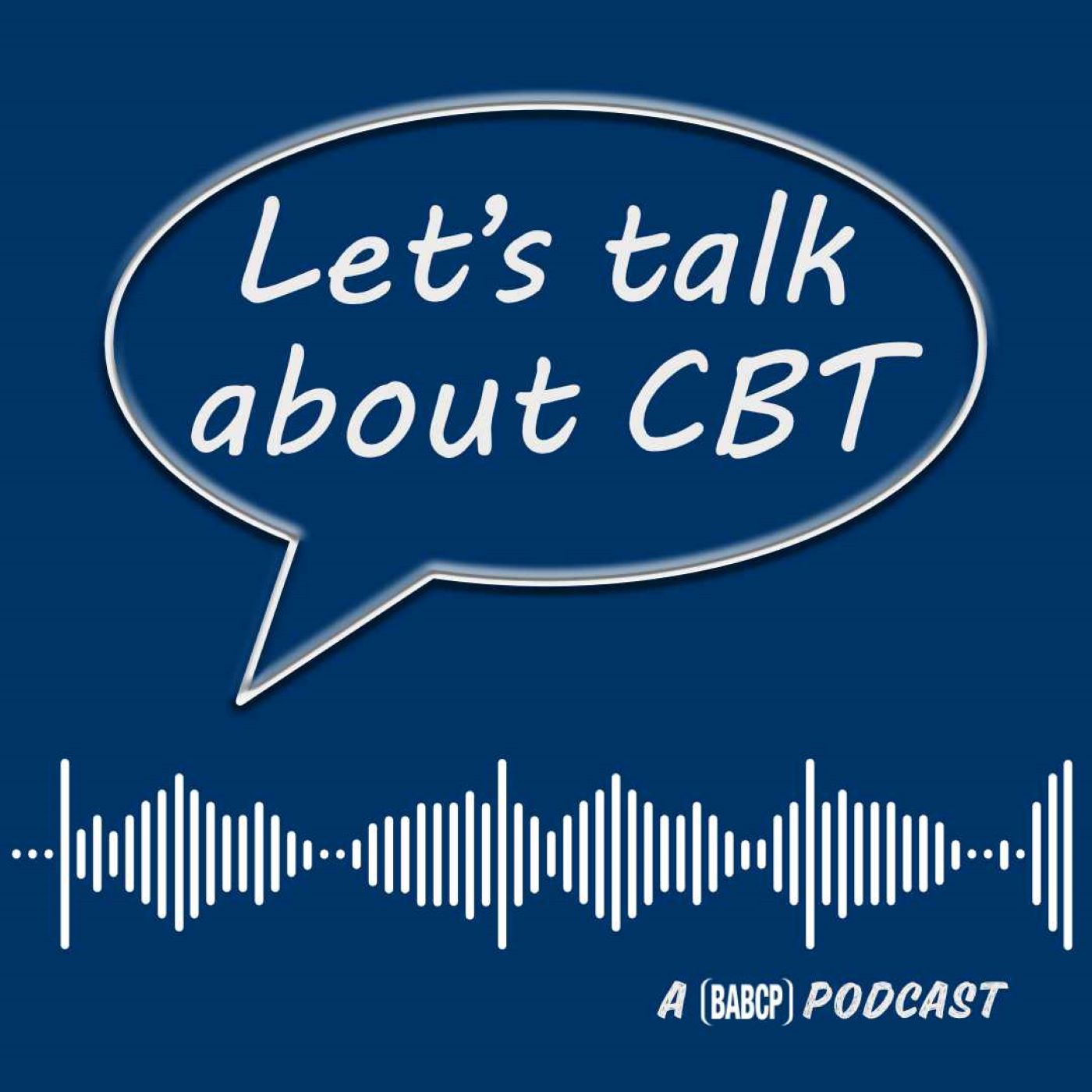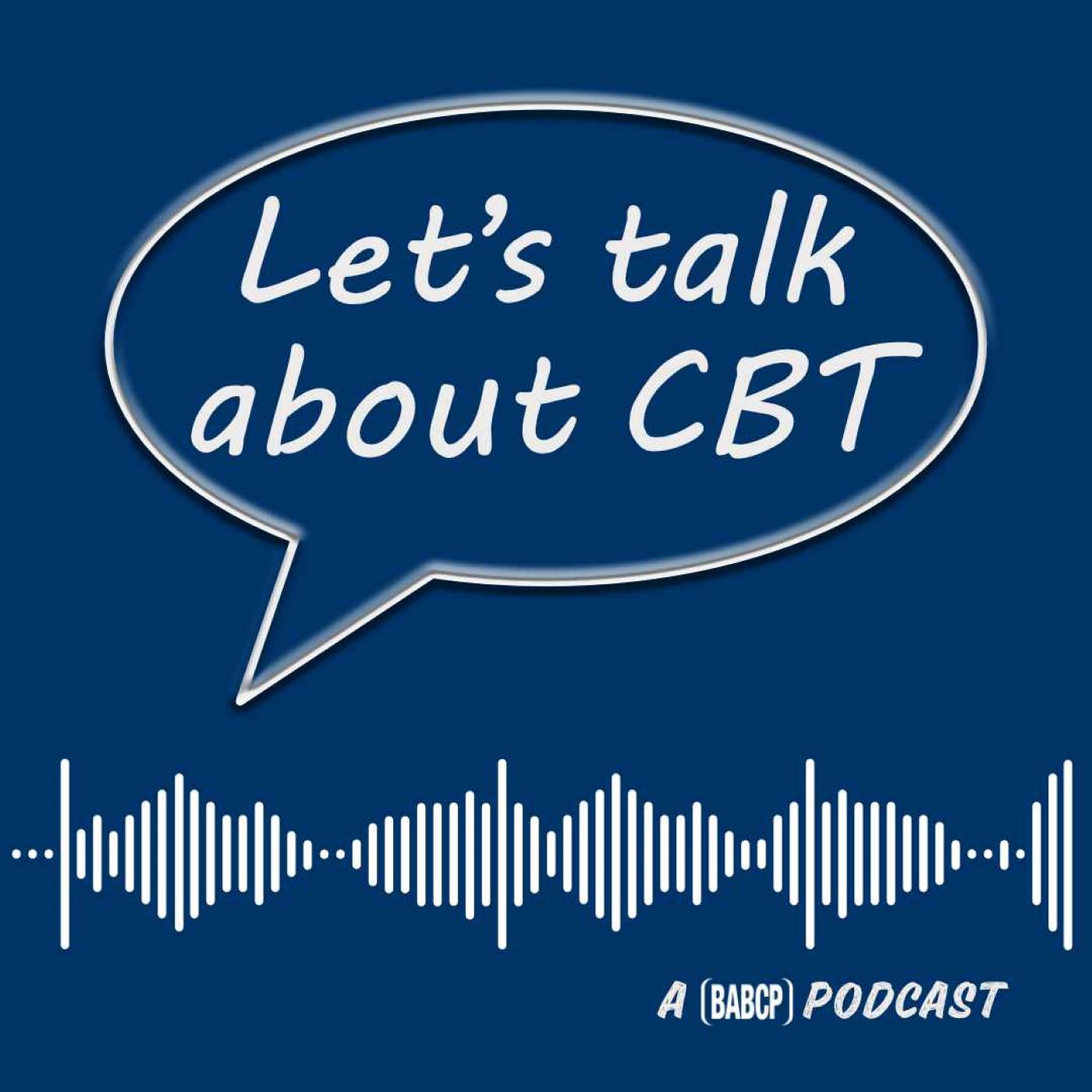Let’s Talk About…Digital CBT and Cultural Connection
Description
In this latest episode of Let’s Talk About CBT, host Helen Macdonald is joined by two international guests- Tafi Mazikana and Sherrie Steyn who share their journey from CBT service user and therapist to CBT innovators.
Tafi, originally from Zimbabwe, opens up about his experiences with anxiety while working in a high-pressured job in finance and how a digital CBT intervention through IAPT (now known as NHS Talking Therapies) changed his life. He talks candidly about the cultural stigma around mental health, what it was like to try therapy for the first time, and his realisation that CBT is about learning practical, empowering skills.
We also hear from Sherrie, a clinical and community psychologist from South Africa and co-founder of the Vimbo Health app along with Tafi. She reflects on her friendship with Tafi, the surprising conversations that sparked their collaboration, and the importance of culturally adapted therapy.
Together, they describe how Vimbo Health was developed to meet the unique challenges and needs of people in South Africa, particularly in terms of language, cultural metaphors, accessibility, and affordability. They explore how therapy can be made more relevant and relatable, from replacing metaphors like “three-legged stools” with potjie pots to tackling barriers like mobile data costs and mental health stigma.
Whether you’re a therapist or someone curious about accessing help in a different way, this conversation shines a light on how CBT can be tailored, inclusive, and transformative.
Resources & Links:
Learn more about Vimbo Health: https://www.vimbohealth.com/
Information on CBT and how to find a therapist
If you or someone you know needs urgent help, reach out to Samaritans at 116 123 (UK) or visit samaritans.org
Find our sister podcasts and all our other episodes in our podcast hub here: https://babcp.com/Podcasts
Have feedback? Email us at podcasts@babcp.com
Follow us on Instagram & Bluesky: @BABCPpodcasts
Credits:
Music is Autmn Coffee by Bosnow from Uppbeat
Music from #Uppbeat (free for Creators!): https://uppbeat.io/t/bosnow/autumn-coffee
License code: 3F32NRBYH67P5MIF
This episode was produced by Steph Curnow
Transcript:
Helen: Hello, and welcome to Let's Talk About CBT, the podcast where we talk about cognitive and behavioural psychotherapies, what they are, what they can do, and what they can't. I'm Helen Macdonald, your host. I'm the Senior Clinical Advisor for the British Association for Behavioural and Cognitive Psychotherapies.
I'm absolutely delighted today to have some international guests for you. And in a moment, I'm going to ask, Tafi and Sherrie to introduce themselves. We're going to be talking with them about the experience of having CBT and then some really exciting developments that have happened since. But first, let's start with some introductions. Tafi, would you like to tell people who you are?
Tafi: Yes, definitely. Thank you, Helen, really a pleasure to be with you today on this podcast. So I'm Tafi Mazikana and I'm Co-founder and CEO of Vimbo Health, a metal health app that's operating mostly out of South Africa. My background as I've shared, is not as a practitioner. My background is as a patient, of CBT who became very curious, perhaps too curious. So I was living in the UK working in banking and finance, and I was just very lucky to come across the services of IAPT which allowed me to self-refer in this area of mental health. I never knew that one could actually reach out and do something, so that was game changing in itself. But I was offered to have a digital CBT intervention, which was very transformative for me but obviously just left question marks as someone born and raised in Africa to say, well, who's thinking about the African context? Because, as I'll share later, there are things and ways of thinking and speaking that are different and I was just curious about who is going to think about that. And so became more and more involved, in this area of CBT, and in particular digital CBT.
Helen: Thank you so much, Tafi. There's lots that we're going to talk about there. Before we start that though, Sherrie, can I ask you to introduce yourself please?
Sherrie: Hi Helen. Thank you for having me. My name is Sherrie Steyn and I am from South Africa. I'm actually very fortunate to be from the East coast, so the sunny side, and my background is in clinical and community psychology. I tend towards the behavioural types of psychology. So I've done some ABA or as we call it VBA now and of course a special interest in CBT. So having done that clinical and community psychology, I then went on to do one of the allied CBT training courses through UCL. So I was very fortunate, to have done that. And that's a little bit about my background and, yes, I'm also the co-founder and CSO of Vimbo, I like to say I'm the science, because it sounds cool and yeah, just very happy to be here and share some of our experiences with you today.
Helen: Thank you so much. So if I can come back to you, Tafi, I wonder if you would be willing to just tell our listeners a little bit about what it was that made you actually reach out to access CBT. Do you mind telling us a bit about what was happening for you that meant that you were seeking some help?
Tafi: Yeah, absolutely. I think what I with hindsight realise is that it was difficulties that built up gradually over time and came to a point where they sort of caught me off guard. At the time that I reached out for help, I was working in the banking sector there in London on very stressful, large projects, which brought on a lot of anxiety, but I traced back my difficulties to over 10 years ago in terms of when those little moments of a negative self-talk, which started as innocent, and then grew into something of its own life, sort of started to happen and without the right tools then entering into that professional world, I do think I was at a disadvantage. I had some great tools in terms of being quite active and taking part in sports and exercise. So that's amazing but definitely what I came to realise is that I was actually lacking other tools that could have helped me to not get into a situation where I'm feeling like I'm in a lot of difficulty. So yeah, so I always describe it as, for me, in my case, not one thing in particular, but I feel like a gradual buildup of life just happening or that negative thinking pattern becoming something of its own.
Helen: And I think it's quite important to notice that, that it doesn't have to be some one particular dramatic event or something key that changes. It might be a combination of things or a buildup over time. So can I ask you a bit about when you did access the CBT, what did you actually get? What happened in CBT for you?
Tafi: Yeah, so I think for me, I grew up in Zimbabwe in Africa, and there isn't a tradition of seeking help. So for us, therapy is something that we saw in movies, we know that movie characters in Hollywood have therapists and get help. Or we associated it with people who we knew in the community who are undergoing inpatient care. And those are the forms of help that we knew to be there. Things that are not related to us in terms of early intervention, it is more something that happens when you are at the stage of acute care, which is inpatient. So essentially when I reached out for help, I was a bit sceptical of what was offered because it didn't fit the moulds of what I thought help looked like. And when I chose the route of going for the self-guided digital option that I was given there. I was, again, sceptical because it was not what I thought therapy looked like. I chose it because it was, it felt like a lower barrier because I was still quite afraid to talk about my feelings and to talk about my thoughts and experiences. But yeah, but, needless to say, I was actually shocked and quite impressed at how effective it was. And so that, that introduced me into the idea that help is something you don't have to wait until you are at that acute phase of need. But also, it taught me that CBT is about, in my opinion, I guess I'm not a practitioner, so please take it with a bit of salt, but it taught me that CBT is about building skills, which is quite a positive thing. It's actually quite empowering is what I learned then, and I think that's what resonated the most with me and got me hooked onto this form of help.


















